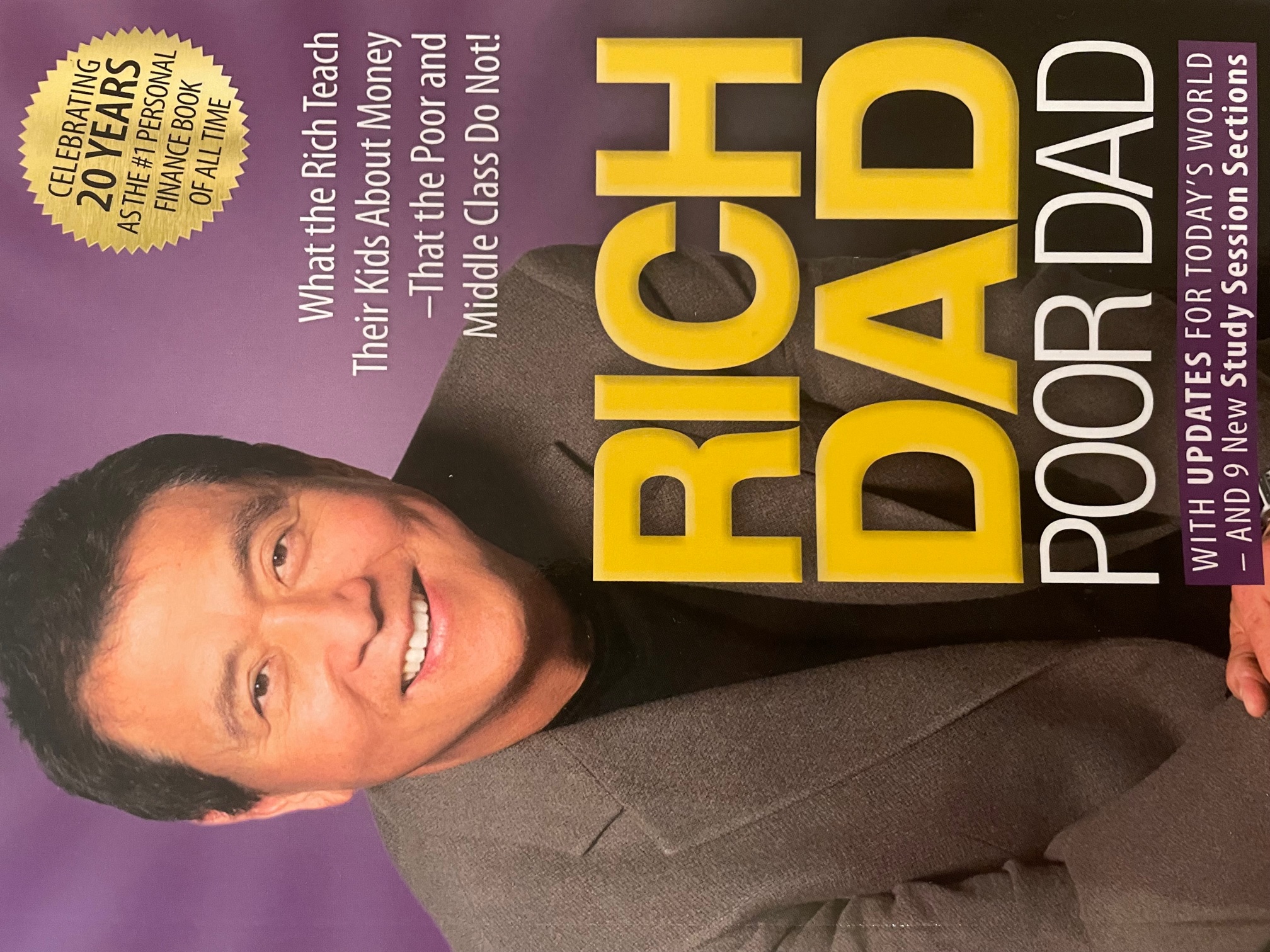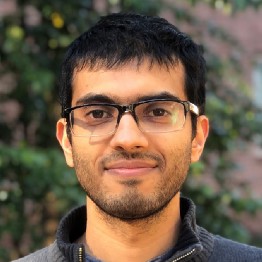Rich Dad/Poor Dad
I was pleasantly surprised this financial best seller emphasizes the mindset of creating value for the life you want, rather than running after money. Kiyosaki’s birth father was an intellectual man, but apparently lost his money because of poor financial decisions. The rich dad was Kiyosaki’s friend’s dad, who taught him lessons in financial literacy and financial freedom, through allowing Kiyosaki to follow in his footsteps.

Through the book, Kiyosaki illustrates the financial lessons he learned by working for his friend’s father. One such lesson is that the rich don’t work for money. To me this statement makes sense as Kiyosaki explains it - the middle class is caught in a never ending trap of making stable but low wages. As a result, many hardworking folks have to work extremely hard to make ends meet, sometimes working multiple jobs. This in combination with a lack of accounting for financial conditions and a tendency to waste money on non-essential items leads to a cycle of wealth loss and poverty. However, one thing he says about “rich” people particularly stands out. It’s not about getting rich quickly through some scheme or some clever way no one has ever thought of. And it doesn’t even have anything to do with money. He said:
“Be an observer, not a reactor to your emotions. Most people do not know that it is their emotions that are doing the thinking. Your emotions are your emotions, but you have got to do the thinking.”
I think this is a profound statement, that does not have to do only with making money. But also leading a rich, fulfilling life not necessarily associated with a dollar amount. Mastering the mind is a crucial step it seems, to being financially successful. If you read my post on Gandhi, you will see that the lessons he writes about (“To attain [perfection], one has to become absolutely passion-free in thought, speech and action; to rise above the opposing currents of love and hatred, attachment and repulsion”) resonates with Kiyosaki’s ideas too. If you had told me 2 years ago that Gandhi’s book and a financial best seller have the same underlying theme, I would have never believed you!
The next lesson talks about learning the tools of financial literacy: namely assets vs liabilities. Kiyosaki simply states: the rich buy assets, the poor have expenses, and the middle class buys liabilities that they think are assets. He treats a house that one lives in as a liability, and a bigger house as a bigger liability. That does not mean that he doesn’t like real estate though, quite the opposite - he made his initial fortune and quit his day job because of a successful real estate side business.
The basic tools for financial literacy are understanding assets and liabilities. And understanding how the income made and expenses incurred result in cash flows into and from assets and liabilities The income earned by the middle class flows into liabilities, and expenses. Whereas the rich generate income from assets. A quite remarkable example is the fast food chain McDonalds. The CEO of McDonalds, Ray Kroc, famously asked students what business he was in. They laughed and said of course hamburgers. But he said that McDonalds was in fact in the real estate business, and not the hamburger business. McDonalds is one of the world’s largest real estate companies and has a unique arrangement with it’s franchises to whom it leases its land at a marked up price. Kiyosaki illustrates that one should know the difference between one’s business and one’s profession. Business translates into multiple complex life decisions, whereas one’s profession is only a piece of the entire puzzle. Kiyosaki of course talks about how to shield from taxes by forming the right sort of company. In regards to working in a job, Kiyosaki says that you should work to learn, rather than working to earn money. Look down the road at skills you wish to acquire, before choosing a profession and potentially getting trapped in the rat race.
The final section of his book is titled “Teach and you shall receive.” This particularly resonates with me, as I like teaching in various formats. And recently with the online education explosion, I have found much truth to this statement - from students who enjoy my online resources to those who read my blogs and research articles and for lifelong collaborations. Youtuber David Perrel (according to another youtuber Ali Abdaal) makes a wonderful statement about online writing. He says think about if you live in a small village and don’t go out too much - your contacts, interactions, and ideas are limited to those from within the village. But what if you take a trip every week to a far away place? You might meet all sorts of people with all sorts of ideas, have serendipitous connections and broaden your mind. So go forth and put your work out there. You might never know all the possible value for your approach, and you might be useful. It’s not possible to imagine all the future possibilities and opportunities that could result from just putting your work out there. I say this from first hand experience. Multiple times. Even though I’m not super popular. If I can do it, so can you.
Based on a suggestion by the incredible Youtuber Ali Abdaaal, I’m going to summarize 3 key points I learnt from this book as well as 3 quotes that stood out:
3 Takeaways:
- The rich get richer because their assets generate more than enough income to cover expenses. The middle class struggles because their primary income is through salary. As salaries rise, so do taxes. And middle class income is spent towards liabilities. Assets are dissolved to help pay for uncovered expenses.
- The McDonalds example teaches that sometimes one’s business is different from one’s profession. Recently I’ve come across Youtube study channels - the person makes money by sharing their screen and surroundings while they are studying, and viewers watch their videos and probably study alongside. These people are literally making assets out of just their immediate surroundings and making money off it, while their profession is what they are studying for (e.g. medical school).
- Don’t work for money - rather, work to learn
3 Quotes:
- “Be an observer, not a reactor to your emotions. Most people do not know that it is their emotions that are doing the thinking. Your emotions are your emotions, but you have got to do the thinking.”
- “Work to learn - don’t work for money”
- “Each dollar in my asset column was a great employee, working hard to make more employees and buy the boss a new Porsche.”
Caveats
Serendipitously, I found an article by Tim Denning as I finished up this article, on the very same book! He points out how Kiyosaki does not exactly give the best financial advice these days. So keep this in mind that this post is not a thumbs up for all of Kiyosaki’s advice. And this post is not financial advice. It represents my thoughts on a financial best seller, and my learnings from it.

Comments